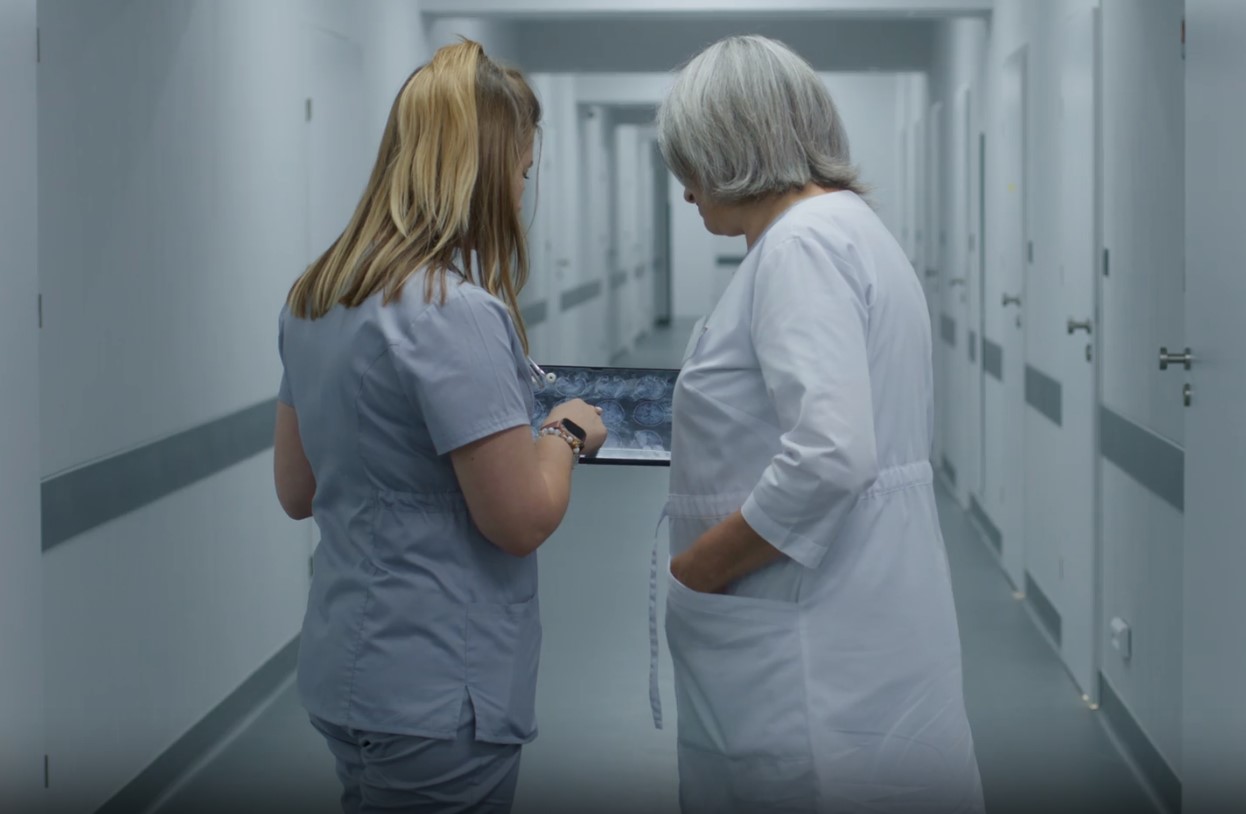For anyone considering a career in mental health, it’s important to know about the different levels of education and training required for various roles.
With roles ranging from psychiatrists, who must complete medical school plus residency, to counselors and social workers, who need master’s degrees in their respective fields, the path to a career in mental health is diverse.
The following article will share more about the highest degree in this field.
Required Education for Psychiatrists
To become a psychiatrist, an individual must complete a rigorous educational pathway. This starts with a bachelor’s degree, typically in a field related to science or psychology.
Following this, four years of medical school are necessary to earn an MD (Doctor of Medicine) or DO (Doctor of Osteopathy) degree. After medical school, a psychiatrist must complete at least four years of residency training in psychiatry.
A great solution is that there are Master programs you can complete online. You can click here to find out more about this possibility.
The residency includes hands-on experience in diagnosing and treating mental illnesses under the supervision of experienced psychiatrists.
Licensure is the final step, requiring passing a state exam to practice psychiatry legally. This extensive educational and training process ensures psychiatrists are well-prepared to provide comprehensive mental health care.
Training and Licensure for Social Workers
Social workers play a vital role in supporting individuals, families, and communities. The minimum educational requirement is a bachelor’s degree in social work (BSW).
However, for clinical social work roles, a master’s degree in social work (MSW) is essential. MSW programs typically take two years to complete and include both coursework and practical field experience.
Following their education, social workers must obtain licensure to practice, which involves passing a professional exam and completing supervised clinical hours.
Requirements vary by state but aim to ensure that social workers are competent in their practice and adhere to ethical standards.
Master’s Degrees for Mental Health Counselors
Mental health counselors provide crucial support to individuals dealing with emotional, mental, and behavioral issues. A master’s degree in counseling or a closely related field is the standard requirement for this career.
These programs, usually lasting two to three years, cover therapeutic techniques, psychology, and specialized areas such as substance abuse or family therapy.
Graduates must then complete supervised clinical work, often requiring 2,000 to 4,000 hours of practice, before obtaining licensure. This process ensures counselors are equipped with the necessary skills and experience to provide effective therapy.
Undergraduate Coursework for Mental Health Professionals
Undergraduate education for mental health professionals lays the foundational knowledge needed for advanced studies.
Degrees in psychology, social work, or related fields introduce students to basic concepts in human behavior, mental health, and social services.
Coursework often includes biology, chemistry, statistics, research methods, ethics, and specialized topics like substance abuse or diversity.
This broad educational base prepares students for the specific graduate studies required in their chosen mental health career path.
Doctoral Degrees for Clinical and Counseling Psychologists
Clinical and counseling psychologists typically need a doctoral degree, either a PhD in Psychology or a Doctor of Psychology (PsyD).
These programs involve extensive research and practical clinical experience, preparing graduates to assess and treat mental health disorders.
PhD programs often focus more on research, whereas PsyD programs emphasize clinical practice.
Both require completion of a dissertation and a supervised internship, typically lasting one year. Graduates must pass a licensing exam to practice, ensuring they meet the high standards needed to provide psychological services.
Graduate Studies for Licensed Social Workers
Licensed social workers usually require a Master’s degree in Social Work (MSW). MSW programs provide advanced training in social work practice, policy, and research, enabling graduates to work in clinical settings.
These programs typically require two years of full-time study and include both coursework and supervised field experience.
Specializations such as child welfare, mental health, or substance abuse are often available, allowing students to tailor their education to their career goals.
State licensure follows, requiring passage of an exam and, in some cases, additional supervised clinical hours.
Education Requirements for Marriage and Family Therapists
Marriage and family therapists specialize in treating mental and emotional disorders within the context of relationships and family systems.
A two-year graduate program leading to a master’s degree in marriage and family therapy, psychology, or social work is required.
These programs focus on relational therapy techniques, ethics, and supervised clinical practice.
Graduates must complete additional supervised clinical hours post-degree to qualify for state licensure, ensuring they have the necessary experience to provide effective therapy to couples and families.
Advanced Degrees for Licensed Professional Counselors
Licensed professional counselors (LPCs) need a master’s degree in counseling or a related field. These programs, which typically take two to three years to complete, cover counseling theories, techniques, ethics, and specialized areas like trauma or school counseling.
Graduates must complete a significant number of supervised clinical hours—requirements vary by state—before they can sit for licensure exams. This rigorous educational and practical training prepares LPCs to provide high-quality mental health counseling.
Qualifications for School Psychologists
School psychologists support the educational and emotional needs of students. They typically require a doctoral degree (PhD or PsyD) or a specialist degree (EdS) in school psychology.
These programs include coursework in education and psychology, as well as practical experience in schools. A supervised internship, usually one year in length, is also required.
State certification or licensure allows school psychologists to work in public schools, ensuring they are prepared to address students’ learning and behavioral issues.
Master’s Degree Programs for Creative Arts Therapists
Creative arts therapists use art, music, drama, or dance/movement therapy to help clients express themselves and address mental health issues. A master’s degree in the specific creative arts therapy field is required.
These programs include both theoretical and practical training, focusing on how to use creative expression as a therapeutic tool. Graduates must complete supervised clinical hours and pass a certification or licensure exam, depending on the state and the specific therapy field.
Graduate Education for Advanced Practice Psychiatric Nurses
Advanced practice psychiatric nurses, including Psychiatric-Mental Health Nurse Practitioners (PMHNPs), need a graduate degree—either a Master of Science in Nursing (MSN) or a Doctor of Nursing Practice (DNP).
These programs specialize in psychiatric-mental health care, preparing nurses to assess, diagnose, and treat mental health conditions. Clinical practicums are a key component, providing hands-on experience under supervision.
National certification and state licensure are required to practice, ensuring these professionals meet the high standards necessary to provide specialized psychiatric care.
Salary Overview for Mental Health Professionals
Salaries for mental health professionals vary widely based on role, education, experience, and location. Clinical psychologists, for example, have a median annual salary of around $90,130, while licensed social workers earn about $55,350.
Marriage and family therapists and licensed professional counselors have median salaries of $56,570 and $49,710, respectively.
School psychologists and psychiatric nurse practitioners also see varied earnings, reflecting the diverse range of opportunities and financial rewards in the mental health field.
FAQs
Where do mental health therapists get paid the most?
Mental health therapists tend to earn the highest salaries in areas with high costs of living, such as major metropolitan cities. States like California, New York, and Massachusetts often offer the highest wages.
What are the 4 major types of therapy?
The four major types of therapy are cognitive behavioral therapy (CBT), psychodynamic therapy, humanistic therapy, and integrative or holistic therapy. Each approach offers unique methods for addressing mental health issues.
What is the best credential for a therapist?
The best credential for a therapist depends on their field of practice, but generally, licensure as a Licensed Professional Counselor (LPC) or Licensed Clinical Social Worker (LCSW) is highly regarded. These credentials indicate a therapist has met rigorous education and clinical experience requirements.
Is ADHD a mental illness?
Yes, Attention Deficit Hyperactivity Disorder (ADHD) is considered a mental illness. It is a neurodevelopmental disorder that affects concentration, impulse control, and activity levels.
What is the rarest mental illness disorder?
Cotard’s Syndrome, also known as Walking Corpse Syndrome, is among the rarest mental health disorders. It leads individuals to believe they are dead or do not exist.
Conclusion
Choosing a path in the mental health profession requires dedication to advanced education and training. Each role, from psychiatrists to creative arts therapists, demands specific degrees and certifications to ensure professionals are equipped to provide the best possible care.
The journey involves rigorous study, hands-on practice, and a commitment to understanding the complexities of mental health. For those passionate about making a difference in this vital field, the pursuit of the highest degrees and education options opens the door to rewarding careers that truly impact individuals and communities.



















